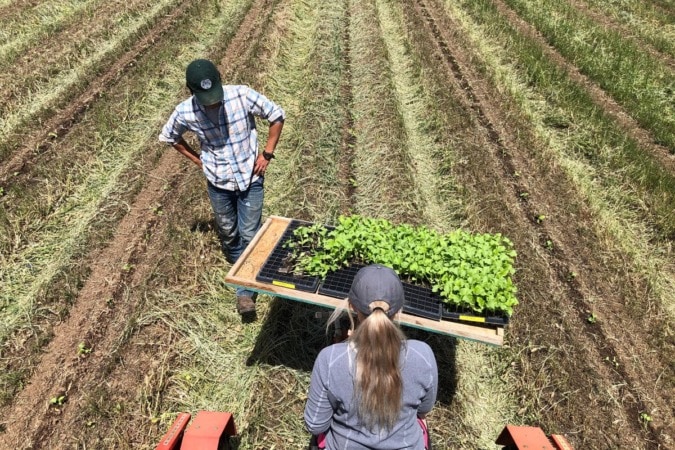
Last summer, veteran organic farmer Scott Park was bewildered when he surveyed his vast tomato, corn, and sunflower fields. Before planting the crops on 350 acres he had radically cut down on tilling the soil, planted cover crops twice, and let goats graze the land. And he was sure he’d see excellent yields.
The undisturbed soil was loaded with earthworms, but the crops grew sluggishly and didn’t produce enough fruit. Park lost almost half of his yields—and over half a million dollars.
“We thought we were going to cut a fat hog,” said Park, whose farm lies 50 miles northwest of Sacramento in California’s Central Valley. “But the combination of no-till and grazing kicked me in the teeth.”
Though surprising, the result was part of a critical experiment that Park plans to replicate again—this time, on a smaller plot on his 1,700-acre farm: Because there’s more at stake than his own profit.
Park, who has been farming for 48 years and is well-known for his soil health practices, is […]










